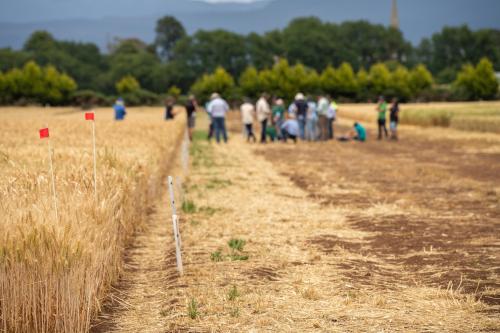ABSTRACT
Antimicrobial resistance (AMR) is a dominant and growing global health threat that led to 1.27 million deaths in 2019. Given the widespread use of antimicrobials in agriculture and industrial applications in addition to healthcare and a range of factors affecting AMR, including climate variability, demographic trends, and plastic and metal pollution, an economy-wide approach is essential to assess its macroeconomic implications. This study summarizes the existing literature on the identified factors driving AMR and reviews the factors that have been considered in existing macroeconomic studies. We highlight the limitations in the available studies and suggest how those could be overcome via an economy-wide modeling approach that integrates the factors behind the evolution of AMR. We present three frameworks to conceptualize the economy-wide use of antimicrobials, the epidemiology of AMR, and how AMR affects the economy in a stylized economy embedded within a more extensive system. We propose how the AMR impacts could be mapped onto economic variables, discuss the significance of these shocks, and outline how AMR evolution scenarios could be designed, particularly with reference to climate change, demographic trends, and associated socioeconomic changes. We also discuss how modeling studies could be improved to increase their utility to policymakers and increase comparability across studies. We conclude with the major policy implications arising from the study which emphasize an economy-wide one-health approach to address AMR; regulation of the antimicrobial supply chain and incentivizing innovations; global cooperation to address AMR, and alleviating uncertainties for policymaking via scaling up the surveillance of AMR, encouraging research collaboration and enabling access to data on AMR and antimicrobial consumption.
Download the full paper here.
The Brookings Institution is financed through the support of a diverse array of foundations, corporations, governments, individuals, as well as an endowment. A list of donors can be found in our annual reports published online here. The findings, interpretations, and conclusions in this report are solely those of its author(s) and are not influenced by any donation.
The Brookings Institution is committed to quality, independence, and impact.
We are supported by a diverse array of funders. In line with our values and policies, each Brookings publication represents the sole views of its author(s).






